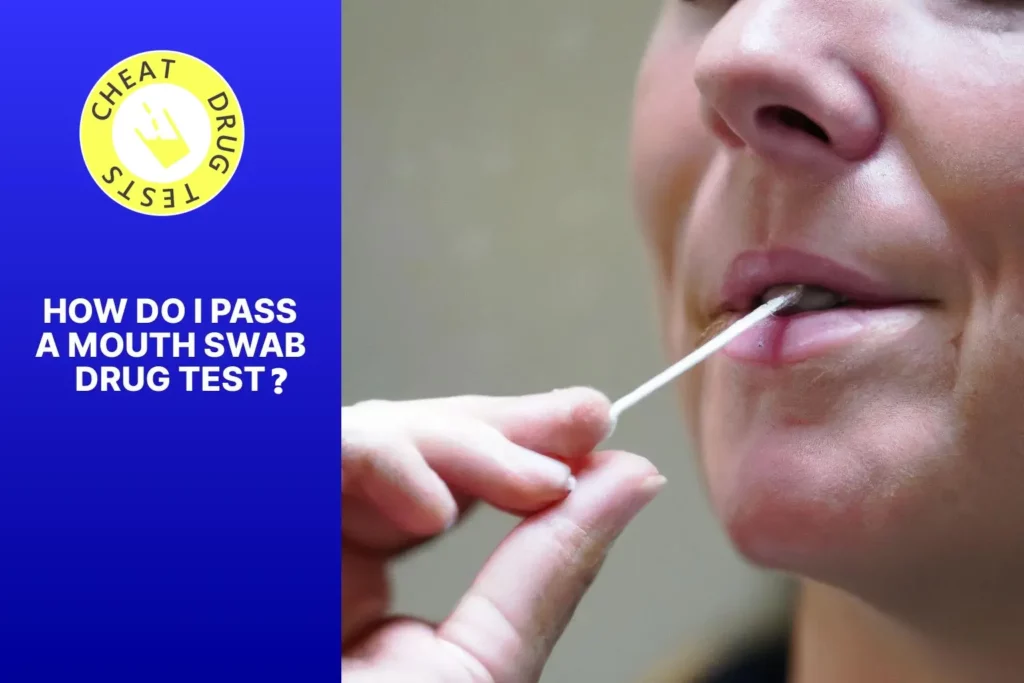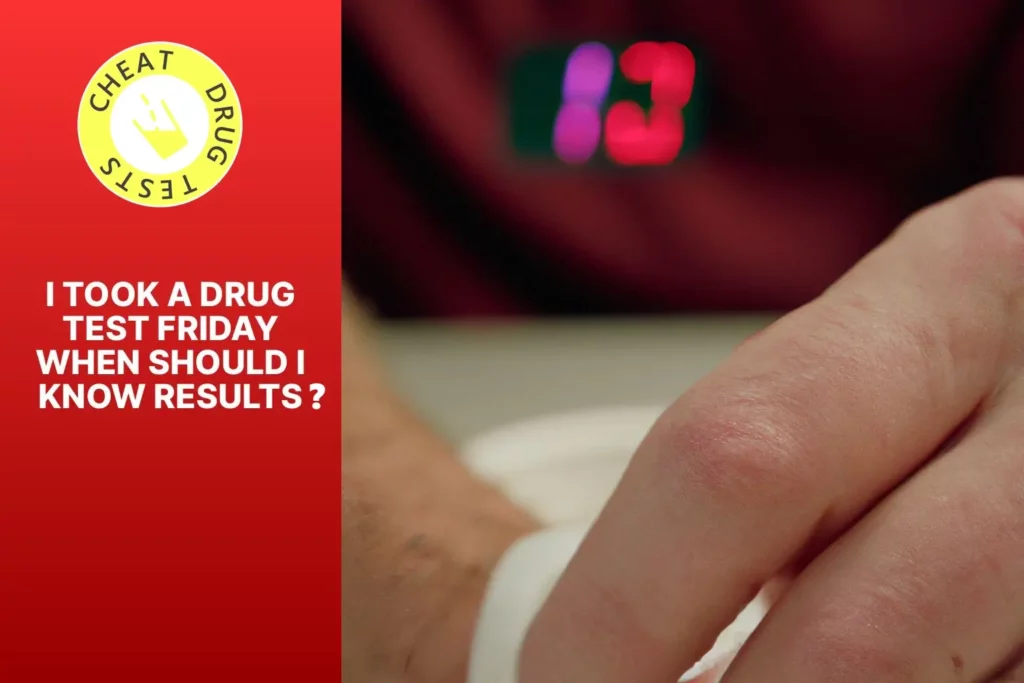To understand drug testing in the healthcare industry, let’s dive into a brief explanation. This will provide insights into the various factors involved in drug testing for nurses. We’ll explore the importance of pre-employment drug screening, including urine tests, and how it affects nursing professionals like yourself.
Brief explanation of drug testing in the healthcare industry
Drug testing is vital within the healthcare industry. It screens individuals for drugs or substances in their system. This enables healthcare professionals to make informed decisions.
The process begins with sample collection. This may include urine, blood, or hair samples. These are then analyzed using techniques such as gas chromatography or mass spectrometry. Drug testing must adhere to protocols and guidelines set by regulatory bodies. This promotes patient safety and quality care.
One example of stringent drug testing was after a medication error caused harm to several patients. This highlighted the importance of thorough drug testing. Regulations were made stricter across the industry.
Drug testing helps protect patients from harm. It identifies potential drug interactions and ensures prescribed medications are adhered to. This facilitates effective treatment outcomes.
Pre-Employment Drug Testing for Nurses
To ensure a safe and qualified nursing workforce, pre-employment drug testing has become an essential step in the hiring process. Explore the importance of drug testing in hiring nurses as well as the common substances screened in these tests. Discover the procedures and protocols employed to conduct these crucial drug tests.
Importance of drug testing in hiring nurses
Drug testing is paramount when it comes to hiring nurses. It guards patient safety by finding any potential substance misuse. By doing drug tests, healthcare organizations can decrease risks linked to nurses providing care while under the influence.
Plus, pre-employment drug testing serves as a preventive measure to avoid liability worries. Healthcare facilities have a legal and moral duty to protect their patients from danger – this includes drug use screening for potential staff. By having comprehensive drug testing policies, healthcare organizations can show their commitment to patient security.
Furthermore, drug testing is fundamental for maintaining a professional and reliable image of the nursing profession. Nurses are trusted with caring for vulnerable people. Ensuring nurses are free from substance abuse sustains the public’s trust in the healthcare industry.
Here is an example of what can happen if proper drug testing is not in place. In a small town hospital, a nurse administered wrong medication while under the influence of drugs. The results were serious, leading to patient harm and bad publicity for the hospital. This could have been avoided if proper drug testing measures were taken during the hiring process.
Common drugs tested in pre-employment drug screenings
Pre-Employment Drug Testing for Nurses is a common practice. It helps employers detect any substance abuse issues. The drugs typically tested in these screenings are: Cocaine, Marijuana, Opioids, Amphetamines, Benzodiazepines, and Barbiturates. They also look for prescription medications that may be abused or impairing. Adhering to proper medication management is essential for nurses. Employers may also test for other substances such as synthetic cannabinoids or hallucinogens.
Each organization has its own specific requirements.
Sarah is a nurse who went through the pre-employment drug screening process. In the past, she had addiction issues but successfully completed rehabilitation. Her honesty was recognized. The hospital administration provided her with extra support during her employment.
Her story shows that drug screenings can be a turning point for those overcoming addiction. It gives them a chance to demonstrate their commitment to responsibility and recovery. It’s important for nurses to provide quality care.
Procedures and protocols for conducting drug tests
Drug testing protocols for nurses are key for patient safety and top-notch care. So, let’s explore how tests are conducted!
- Collection: A urine or blood sample from the nurse is taken in a private and hygienic setting.
- Testing: The sample is then tested rigorously for drugs or other substances. High-tech equipment and experts analyze the samples for accurate results.
- Review and Reporting: After testing, medical professionals that specialize in toxicology look at the results and create a report of negative or positive test outcomes.
- Confidentiality: The info gathered is kept secret and compliant with laws and ethics.
Additionally, random tests are given to prevent substance abuse in healthcare.
It’s important to understand the necessity of drug testing. It guarantees good patient treatment and stops risks caused by impaired healthcare professionals. Drug testing is an essential part of nursing and should be embraced for better healthcare outcomes!
Frequency of Drug Testing for Nurses
To determine the frequency of drug testing for nurses, let’s delve into different scenarios where drug testing may be required and the factors that determine the frequency. This will provide you with a comprehensive understanding of when and how drug testing comes into play in the nursing profession.
Different scenarios where drug testing may be required
Drug tests for nurses may be needed in various cases. To guarantee patient safety and maintain professional standards, there are several scenarios for drug tests.
- Pre-employment Screening: Tests to assess suitability for the job before hiring.
- Random Testing: Random selection of nurses for tests to avoid substance abuse at work.
- Reasonable Suspicion: If signs of impairment or strange behavior are observed, tests may be done.
- Post-Accident Testing: After an incident or accident, tests are conducted to see if drug abuse was involved.
Additionally, some healthcare centers or states may have their own rules for drug testing nurses. It’s essential for nurses to know these regulations and follow them.
Pro Tip: Patient safety first. Stay professional and responsible with drug tests.
Factors determining the frequency of drug testing
We can see that healthcare facilities have varying protocols for drug testing nurses. Bigger hospitals or clinics could have stricter rules due to more patients and risks. Smaller settings could test less frequently.
The job responsibilities of a nurse can also affect drug testing. Nurses in high-risk areas, such as emergency rooms or intensive care units, may be tested more often. Legal requirements, in certain states or countries, could also decide frequency.
Previous incidents or suspicions of substance abuse may cause healthcare facilities to test more often.
Tip: Nurses should understand the importance of professionalism and ethical standards for substance use, regardless of drug testing policies.
Urine Drug Testing for Nurses
To ensure patient safety and evaluate substance abuse, urine drug testing is a common practice in nursing. Discover why urine tests are preferred for drug screening, the process and accuracy behind these tests, and essential tips to prepare for a urine drug test.
Why urine tests are commonly used for drug screening
Urine tests are a go-to for drug screening. Their reliability and convenience make them popular. They can detect a wide range of drugs and their metabolites. This type of testing is non-invasive and easy to collect and analyze. Plus, it’s cost-effective! Urine tests are the standard for workplace drug testing and are commonly used in healthcare.
Urine tests are great for drug screening because they can detect many substances. These include marijuana, cocaine, amphetamines, opioids, and benzodiazepines. Analyzing urine samples gives healthcare professionals insight into an individual’s drug use history. This is important for patient care or employee fitness for duty.
Urine tests are practical for large-scale drug testing. It’s easy to administer and collect samples. The process involves providing a sample in a container. Then it’s analyzed in a lab with specialized equipment. Results are usually available quickly, allowing prompt action if needed.
One example of the importance of urine testing is the 1987 Kimberly Bergalis case. She contracted HIV from her dentist during treatment. This led to a debate on mandatory HIV testing for healthcare workers. It also highlighted the need for comprehensive urine drug testing programs for patient safety.
Process and accuracy of urine drug tests
Urine drug tests are essential to ensure safety and integrity in the nursing profession. Analysis of a urine sample reveals if illicit substances or medications are present. Let’s take a closer look at key factors involved!
| Factor | Description |
|---|---|
| Sample Collection | Avoid contamination using proper collection techniques. |
| Laboratory Testing | Samples undergo analysis using advanced technology. |
| Accuracy | Drug tests have minimal false positives and a high accuracy rate. |
Strict guidelines by professional organizations (ANA) and regulatory bodies are followed. This guarantees consistency and fairness in testing. Urine drug testing not only identifies nurses with substance abuse issues, but also serves as a deterrent.
A study in the Journal of Nursing Administration revealed that regular urine drug testing can reduce substance abuse among nursing staff by up to 50%. This emphasizes the importance of implementing effective drug testing protocols for workplace safety.
Ways to prepare for a urine drug test
Ready for a urine drug test? Here’s a 6-step guide to help you prepare effectively!
- Hydrate: Drink lots of water in the days leading up to the test. Flush out toxins from your system!
- Avoid Substances: Drugs, prescription or recreational, can be detected. So stay away! Also, be aware of medications that could cause a positive result.
- Live Healthy: Eat well and exercise. This speeds up your body’s metabolism and elimination process.
- Educate Yourself: Know which drugs are being tested for. This way you can take precautions.
- Plan Ahead: Get all the info you need (date, time, location) before the test. Have documents ready to avoid stress.
- Be Ready: Practice relaxation techniques to remain calm and focused. Do activities that bring you joy and peace!
Also, each test may have unique requirements. So, ask your healthcare provider or employer for instructions.
Follow these steps for smooth testing. It shows your commitment to patient safety and ethical standards in your profession. Take control of your preparation today!
Potential Consequences of Failing a Drug Test
To understand the potential consequences of failing a drug test as a nurse, delve into the impact on employment and licensing, as well as the available rehabilitation programs and support. This information will provide you with an overview of the solutions for dealing with this issue effectively and efficiently.
Impact on employment and licensing
A failed drug test can cause major issues for someone’s job and licensing. The impacts will differ depending on the type of job or license in question. Here’s a quick look at some of the possible outcomes:
| Career advancement | It may affect advancement possibilities in the organization. |
| Termination of employment | Many companies have stringent guidelines about drugs. Failing a drug test can result in being fired. |
| Job prospects | Failing a drug test can also hurt future job chances, since some employers drug test before hiring. |
| Licensing restrictions | For people in industries that need licensing, like medical professionals or truck drivers, failing a drug test can lead to license suspension or cancellation. |
Additionally, different industries and jurisdictions can have various rules and consequences for failed drug tests.
An important example of this is professional athletes. In the past, some famous athletes have gotten suspended and had their reputations damaged due to failing a drug test. These cases not just had negative impacts on the athletes, but also raised doubts about the integrity of their sports organizations.
Rehabilitation programs and support for nurses
These rehabilitation programs provide nurses with comprehensive assessments to understand their dependency and the best treatment plan. Individual counseling, group therapy sessions, and education tailored to their needs is what they need. The goal is to give them the tools and strategies to beat substance abuse issues and stop relapse.
Also, these programs focus on ongoing support for nurses after treatment. This is important as recovery is a long process that needs effort and attention. Nurses can connect with aftercare programs or peer support groups for encouragement, accountability, and direction.
It’s important for nurses who failed a drug test to find these rehabilitation programs and use the support systems. Not doing this not only affects their career, but also puts patients in danger. By taking part in rehabilitation, nurses can take control of their lives and do their job while being professional.
Don’t let fear stop you from getting help. Take charge of your future by participating in rehabilitation programs that care about your health and the safety of patients. We can make a healthcare industry where all nurses do their role well with kindness and expertise.
Conclusion
To wrap up, let’s quickly summarize the key points we’ve covered in this article about drug testing for nurses. Additionally, I want to share my final thoughts on why drug testing for nurses is crucial. Now, let’s review the highlights and consider the significance of maintaining a stringent drug screening process for nurses in the healthcare profession.
Recap of key points discussed in the article
Let’s recap the most important points from the article. They’ll help you gain a better understanding of the topic.
- Point 1: Effective communication is essential in a professional setting. It helps collaborations run smoothly and prevents misunderstandings.
- Point 2: Active listening is a key skill. It requires full attention and empathy towards the speaker.
- Point 3: Nonverbal communication is very powerful. Gestures, facial expressions, and body language all speak without words.
- Point 4: Clear and concise writing helps ensure our message is understood. Simple language makes it easier to read.
- Point 5: Building rapport and fostering positive relationships are key for effective communication. Respect, trust, and open-mindedness are necessary.
Now for something new.
Adapting our communication style based on context and relationships is essential. Being aware of cultural differences will make it easier to understand and prevent any potential conflicts.
To make effective communication work for you, start using these key points in daily interactions. You’ll have more productive conversations, increased collaboration, and greater success.
Today is the start of your journey. Don’t miss out on this opportunity for growth. Embrace the power of clear expression and meaningful connections – it’s time to unlock your true potential.
Final thoughts on the importance of drug testing for nurses
Drug testing for nurses is essential. It makes sure they’re not influenced by drugs, which can affect their thinking and put patients in danger.
Nurses are vital in patient care and they must be alert and concentrated all the time. Drug testing is a preventive measure to spot any drug abuse issues among nurses. It prevents harm to both the nurse and the patients.
Drug testing also promotes responsibility and professionalism in nursing. It shows that drug use won’t be accepted, creating a culture of trust and reliability.
Drug testing safeguards both patients and the nursing profession’s reputation. By making sure nurses don’t use drugs, public trust in healthcare providers is improved.
Frequently Asked Questions
Frequently Asked Questions about Nurses and Drug Testing
1. Do nurses get drug tested?
Yes, nurses can be subjected to drug testing as part of their employment requirements. Drug testing helps ensure the safety of patients and maintains the integrity of the healthcare profession.
2. When are nurses typically drug tested?
Nurses may undergo drug testing during the pre-employment stage before they start working in a healthcare facility. They can also be randomly drug tested during their employment to ensure ongoing compliance with drug-free policies.
3. What methods are used for drug testing nurses?
The most common method for drug testing nurses is urine testing. A urine sample is collected and analyzed for the presence of drugs or their metabolites. Other methods such as hair or blood testing may also be used depending on specific circumstances.
4. What substances are typically screened for in nurse drug tests?
Nurse drug tests usually screen for a broad range of substances, including illegal drugs such as opioids, cocaine, marijuana, and amphetamines. They may also test for legal substances such as prescription medications to ensure proper usage.
5. Can a nurse refuse to take a drug test?
Refusal to take a drug test can have serious consequences for nurses, including possible termination or disciplinary action. It is generally considered an obligation for healthcare professionals to comply with drug testing requirements.
6. How can nurses ensure they pass a drug test?
To ensure a successful drug test, nurses should strictly adhere to the drug-free policies of their workplace. This includes abstaining from the use of illegal drugs and properly managing the use of prescribed medications. If in doubt about the impact of a particular medication, consulting with a healthcare provider is advisable.
Cheat Drug Test articles & impartial reviews are funded by affiliate commissions, at no extra cost to you, our awesome readers. Learn more



